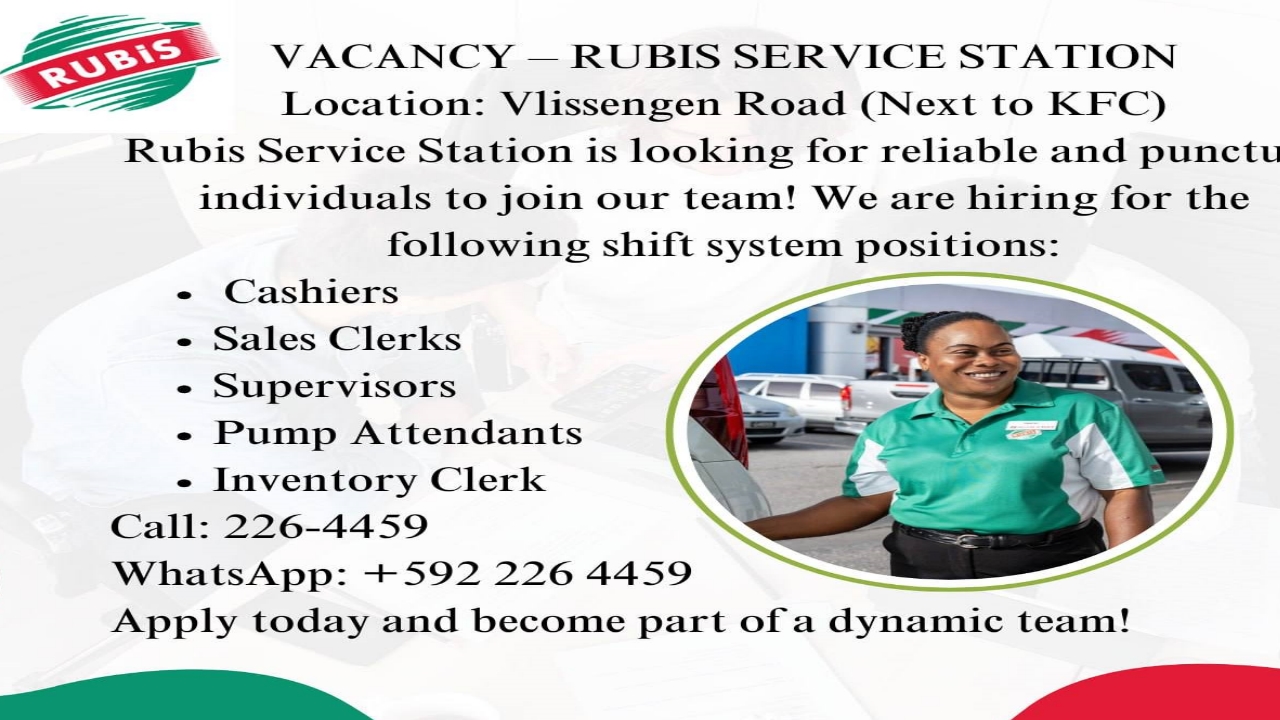50 Reasons Why Guyanese Job Seekers Get Fed Up of Applying for Jobs
50 Reasons Why Guyanese Job Seekers Get Fed Up of Applying for Jobs
50 Reasons Why Guyanese Job Seekers Get Fed Up of Applying for Jobs
Table of Contents
Howdy neighbor, welcome back to my blog post, today i will be discussing 50 Reasons Why Guyanese Job Seekers Get Fed Up of Applying for Jobs. If you applied for a job before you can tell at some point it becomes tedious trying to understand why your applications is being rejected or unanswered. Not only does this makes you frustrated but some job seekers gets tired or fed up of trying to apply for jobs.
In Guyana, like many parts of the world, the quest for employment can often feel like navigating a maze with no clear exit. Job seekers embark on this journey with hope and enthusiasm, but all too often encounter frustration and disillusionment along the way. From bureaucratic hurdles to economic challenges, here are 50 reasons why Guyanese job seekers often find themselves fed up with the job application process:
Disclaimer : the views i share in this article is that of my personal opinion and does not represent a specific entity or organization. Feel free to leave your feedback in the comments of this article blog post.

Limited Job Opportunities: The scarcity of available positions in certain industries can make it difficult for job seekers to find suitable employment. On numerous occasions i have messages from Guyanese Job Seekers who are seeking jobs in a specific industry but searching for those opportunities at times will yield no results.
High Unemployment Rates: Persistent unemployment rates contribute to stiff competition for jobs, leaving many qualified candidates without opportunities. Almost daily in Guyana someone leaves their job, loses their job or contemplates on leaving their job. This not only means more applicants are in the waiting pool to get hired, but applicants who previously secured a job find them self in that list of waiting to get hired pool as well.
Lack of Networking Opportunities: In Guyana’s job market, connections and networks often play a crucial role in securing employment, leaving those without strong networks at a disadvantage. This mainly applies to rural areas. There are many persons in guyana who are still without access to the internet. They rely solely on radio for updates. With the age of social media more companies are relying on social media to spread job awareness. This results in persons in rural areas to be shut out from information leading them to have less access to the information needed for them to get hired.
Nepotism and Favoritism: Job vacancies may sometimes be filled through nepotism or favoritism rather than merit, leading to frustration among qualified candidates.
Insufficient Education and Skills: Some Guyanese Job Seekers may struggle to meet the educational or skills requirements of available positions, limiting their employment prospects. This is an ongoing struggle for many, I believe more on the job training should be introduced to reduce the rate of applicants who may not have the skills some job offers require.
Lack of Training Programs: Limited access to training programs and professional development opportunities can hinder job seekers’ ability to enhance their skills and qualifications.

Inadequate Career Guidance: Many Guyanese job seekers in Guyana face a lack of guidance and support in navigating their career paths, leaving them unsure of how to progress.
Gender Discrimination: Gender biases in the workplace can result in unequal opportunities for male and female job seekers, exacerbating existing inequalities.
Age Discrimination: Older Guyanese Job Seekers may encounter age discrimination, with employers preferring younger candidates perceived as more energetic or adaptable.
Limited Remote Work Opportunities: The traditional nature of many industries in Guyana may limit the availability of remote work options, making it challenging for job seekers who prefer flexible arrangements.
Geographic Constraints: Job opportunities may be concentrated in specific regions of Guyana, limiting options for job seekers residing in rural areas or smaller communities.
Transportation Challenges: Limited public transportation infrastructure can make it difficult for Guyanese Job Seekers to commute to work, particularly if they live in remote areas.
Lack of Job Security: Many Guyanese Job Seekers face uncertainty about the stability and longevity of employment opportunities, leading to anxiety and stress.
Low Wages: Some job seekers may be dissuaded by the low wages offered for certain positions, especially when they are insufficient to meet basic living expenses.
Expensive Cost of Living: High costs of living in urban areas like Georgetown can make it challenging for job seekers to afford housing, transportation, and other necessities.
Limited Access to Healthcare Benefits: Guyanese Job Seekers may be deterred by the lack of comprehensive healthcare benefits offered by employers, especially in industries with precarious employment conditions.
Language Barriers: Language barriers, particularly for non-English speakers, can pose challenges for job seekers in effectively communicating with employers and colleagues.
Lack of Disability Accessibility: Job seekers with disabilities may encounter physical or attitudinal barriers in accessing employment opportunities, despite their qualifications and abilities.
Discrimination Based on Ethnicity or Religion: Ethnic and religious discrimination in the workplace can create barriers for job seekers from minority groups, hindering their prospects of finding employment.
Inadequate Government Support: Limited government support and resources for job creation and workforce development can exacerbate unemployment challenges in Guyana.
Corruption: Corruption within recruitment processes or government institutions can undermine the fairness and transparency of job opportunities, eroding trust among Guyanese Job Seekers.
Delayed Hiring Processes: Lengthy and bureaucratic hiring processes can frustrate Guyanese Job Seekers, especially when they face delays in receiving responses or feedback from potential employers.
Lack of Transparency in Job Postings: Some job postings may lack clear information about job requirements, responsibilities, or salary expectations, leaving job seekers uncertain about whether they are a suitable fit.
Unpaid Internships: The prevalence of unpaid internships can perpetuate inequities in the job market, as only those who can afford to work without pay can gain valuable work experience.
Limited Entrepreneurial Opportunities: Aspiring entrepreneurs may face challenges accessing funding, resources, and support networks to start their own businesses, leading them to seek traditional employment instead.
Cultural Stigma Against Certain Occupations: Cultural attitudes or perceptions may discourage individuals from pursuing certain occupations or industries, limiting their career options.
Lack of Access to Technology: Limited access to internet connectivity and digital technology can hinder job seekers’ ability to search for jobs online or participate in virtual interviews.
Discrimination Against LGBTQ+ Individuals: LGBTQ+ individuals may face discrimination and bias in the workplace, impacting their job search and career advancement opportunities.
Mental Health Stigma: Stigma surrounding mental health issues may prevent job seekers from seeking support or disclosing their mental health challenges to employers, exacerbating their stress and anxiety.
Limited Opportunities for Career Advancement: Job seekers may feel discouraged by the lack of opportunities for career growth and advancement within their chosen field or industry.
Lack of Affordable Childcare: The high cost and limited availability of childcare services can pose challenges for parents seeking employment, particularly single parents or low-income families.
Inadequate Maternity and Paternity Leave Policies: Insufficient maternity and paternity leave policies can deter individuals from starting families or returning to work after childbirth, impacting their career trajectories.
Discrimination Against Persons Living with HIV/AIDS: Individuals living with HIV/AIDS may face discrimination and stigma in the workplace, impeding their ability to secure employment or advance in their careers.
Limited Access to Legal Support: Job seekers may lack access to legal assistance or recourse in cases of workplace discrimination, unfair dismissal, or other labor rights violations.
Lack of Recognition for Informal Work Experience: Informal work experience or skills acquired through non-traditional means may not be recognized or valued by employers, limiting job seekers’ opportunities.
Environmental Concerns: Environmental degradation and climate change impacts can disrupt livelihoods and employment opportunities, particularly in sectors dependent on natural resources.
Lack of Access to Financial Services: Limited access to banking and financial services can hinder entrepreneurship and small business development, limiting job creation opportunities.
Political Instability: Political instability and uncertainty can negatively affect investor confidence and economic growth, leading to job market fluctuations and layoffs.
Limited Access to Higher Education: Socioeconomic barriers may prevent individuals from accessing higher education or vocational training programs, limiting their career prospects.
Lack of Work-Life Balance: Jobs with demanding schedules or long hours may discourage individuals from pursuing certain career paths, especially if they prioritize work-life balance.
Inadequate Infrastructure Development: Poor infrastructure, such as roads, electricity, and telecommunications, can impede economic development and job creation in certain regions of Guyana.
Limited Access to Affordable Housing: The shortage of affordable housing options can make it difficult for job seekers to relocate or establish stable living arrangements near job opportunities.
Gender Pay Gap: Disparities in wages between men and women for similar work can contribute to economic inequality and discourage female job seekers from entering certain industries.
Lack of Representation in Leadership Positions: The underrepresentation of marginalized groups, such as women and ethnic minorities, in leadership positions can hinder diversity and inclusion efforts within organizations.
Inadequate Workplace Safety Standards: Unsafe working conditions or lax enforcement of occupational health and safety regulations can put job seekers at risk and deter them from pursuing certain jobs.
Limited Access to Agricultural Land: Land tenure issues and land distribution inequalities can hinder agricultural entrepreneurship and rural employment opportunities.
Limited Access to Microfinance: Limited access to microfinance and credit services can impede entrepreneurship and small business development, particularly in rural areas.
Brain Drain: The emigration of skilled professionals and young talent seeking better opportunities abroad can exacerbate skills shortages and labor market challenges in Guyana.
Lack of Affordable Healthcare: High healthcare costs and limited access to affordable healthcare services can pose financial burdens on job seekers and their families, impacting their ability to secure employment.
Lack of Hope and Optimism: Cumulatively, the challenges and barriers faced by Guyanese job seekers can erode their sense of hope and optimism about their future prospects, leading to disillusionment and frustration.
Navigating the job market in Guyana is undeniably complex, with myriad challenges and obstacles standing in the way of employment opportunities. Addressing these issues requires a concerted effort from government, employers, civil society organizations, and other stakeholders to create an inclusive and equitable labor market that provides opportunities for all. Until then, job seekers in Guyana must persevere in their search for meaningful employment, armed with resilience, determination, and a belief in their own potential to overcome the odds.
To find recent job listings across guyana check out my public channel here https://t.me/jobadsguyana
Employers : If you are seeking to boost your job listing reach out to me via linkedin here
Feel free to read some of my other blog post here : Why Guyanese Job Seekers Should Send Follow-Up Emails ,
Job Interview in Guyana What to Avoid for Success and Land your Next Job offer , Discover How to get a Job in Guyana without completing Secondary School
![]()




